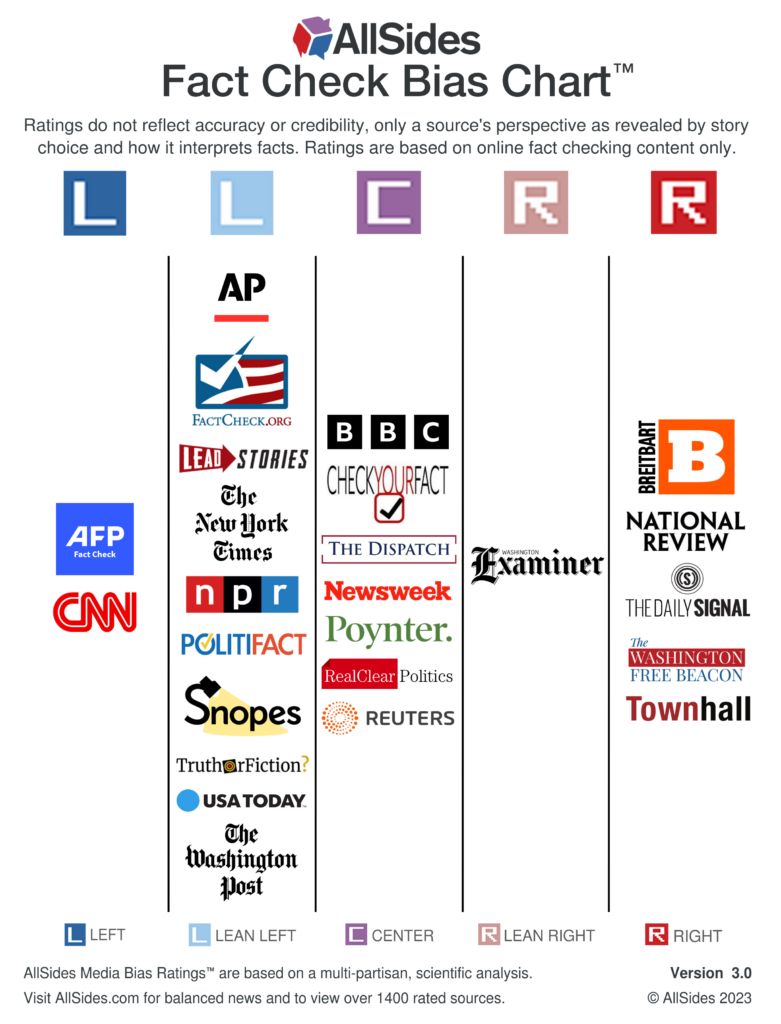Fact-checking is the process of verifying the factual accuracy of debated statements or report. Here are some sites that can be used to verify statements and information without excessive bias.
- Snopes.com – Snopes got its start in 1994, investigating urban legends, hoaxes, and folklore. As demand for reliable fact checks grew, so did Snopes. Now it’s the oldest and largest fact-checking site online. Member of the International Fact Checking Network (IFCN).
- FactCheck.org – FactCheck.org is a nonprofit website that aims to reduce the level of deception and confusion in U.S. politics by providing original research on misinformation and hoaxes. It is a project of the Annenberg Public Policy Center of the Annenberg School for Communication at the University of Pennsylvania, and is funded primarily by the Annenberg Foundation. A member of the IFCN.
- Reuters Fact Check – an area of Reuters web site that examines social media narratives and misinformation. Reuters strives to act with integrity, independence, and freedom from bias. Member of the IFCN.
- BBC Verify – The British Broadcasting Corporation (BBC) is a British public service broadcaster headquartered in London, England. Originally established in 1922 as the British Broadcasting Company, it evolved into its current state with its current name in 1927. One of the items in its charter is “to provide impartial news and information to help people understand and engage with the world around them.”
- Poynter – The Poynter Institute for Media Studies is a non-profit journalism school and research organization in St. Petersburg, Florida, United States. Poynter not only has a fact-checking site, but launched the International Fact-Checking Network (IFCN) in 2015. It also owns PolitiFact web site and the Tampa Bay Times.
Any source of information while accurate may have a bias and the list above have been judged by the web site AllSides.com and are shown in the graphic below.
